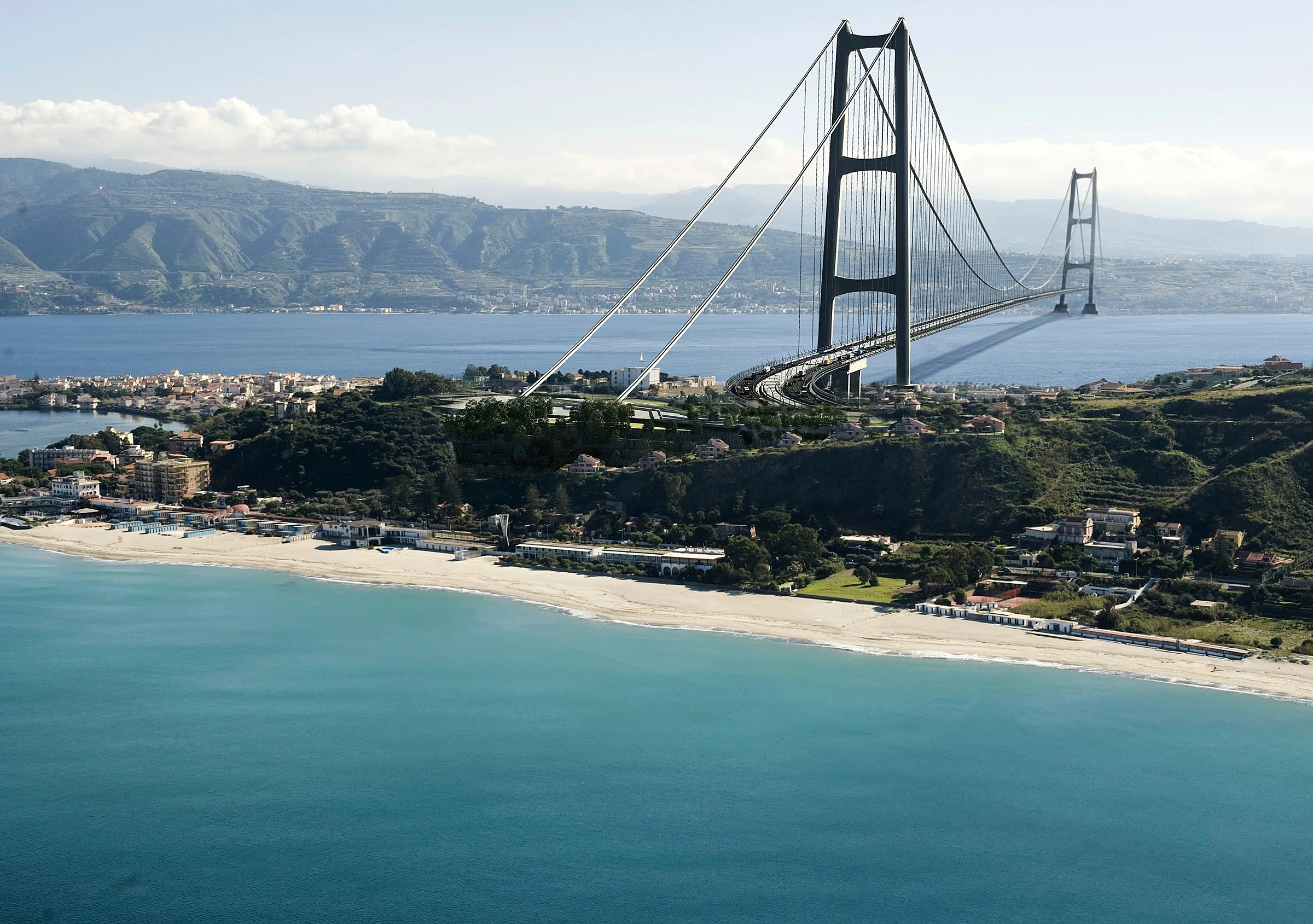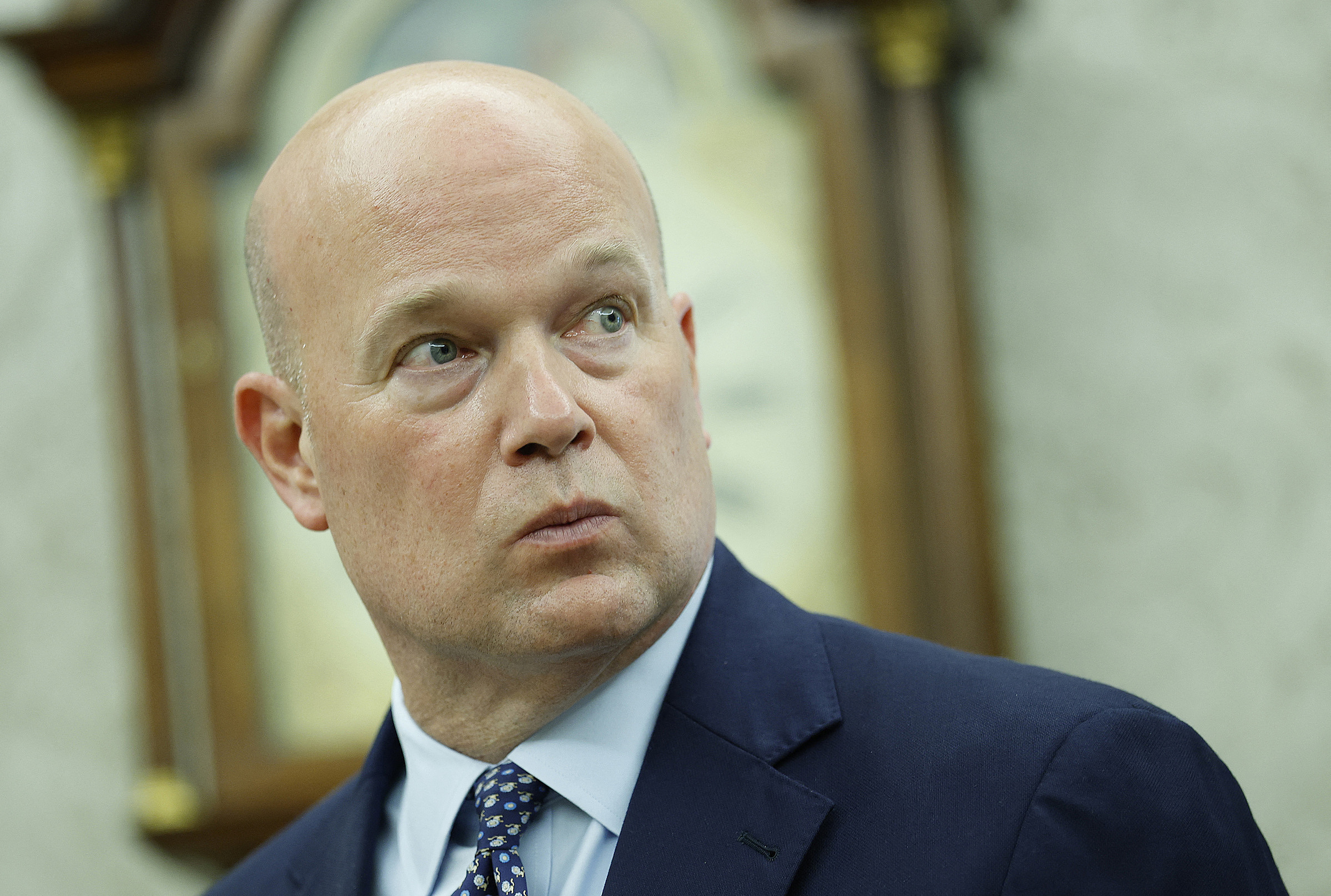The Italian Ministry of Infrastructure announced on 3/9 that "the bridge is fully funded by the state budget, with no defense spending involved. Currently, the use of the NATO budget for bridge construction has not been proposed, nor is it necessary." The statement referred to the project to build the world's longest suspension bridge across the Strait of Messina.
In early August, Italy approved the $15.6 billion project to build a suspension bridge connecting the island of Sicily to the mainland. The bridge will include two railway lines in the middle and three lanes of traffic on each side. The main span will be 3.3 km long, suspended between two 400-meter-high towers. The project is expected to be completed in 2032.
 |
Graphic design of the bridge connecting the island of Sicily and the Italian mainland. Photo: *WeBuild* |
Some Italian government officials, including Deputy Prime Minister and Minister of Transport and Infrastructure Matteo Salvini, a leading proponent of the Messina bridge, argued that the bridge could be classified as a defense project due to its dual-use nature. As a defense project, the bridge could potentially utilize funds from Italy's NATO spending contributions.
However, US Ambassador to NATO Matthew Whitaker rejected the idea of including the bridge's cost in Italy's defense spending, which is intended to meet the target of increasing defense spending to 5% of GDP as requested by former US President Donald Trump.
"Some countries are taking a very expansive view of what constitutes defense-related spending," Ambassador Whitaker said in Slovenia on 2/9.
According to Whitaker, the 5% GDP spending target refers specifically and directly to defense, "not bridges that have no military strategic value. Nor schools that somehow, in some fantasy world, would be used for some military purpose," he said.
When asked whether Italy's Messina bridge project could be classified as defense spending, Whitaker replied, "I’m watching that very closely. The good thing about this commitment compared to 2014 is that we have a monitoring mechanism."
 |
US Ambassador to NATO Matthew Whitaker. Photo: *AFP* |
In April, the Italian government described the Messina bridge as having "strategic importance for national and international security, playing a key role in the context of defense and security, facilitating the mobility of the Italian armed forces and allies."
Duc Trung (*Defense News, Reuters*)












